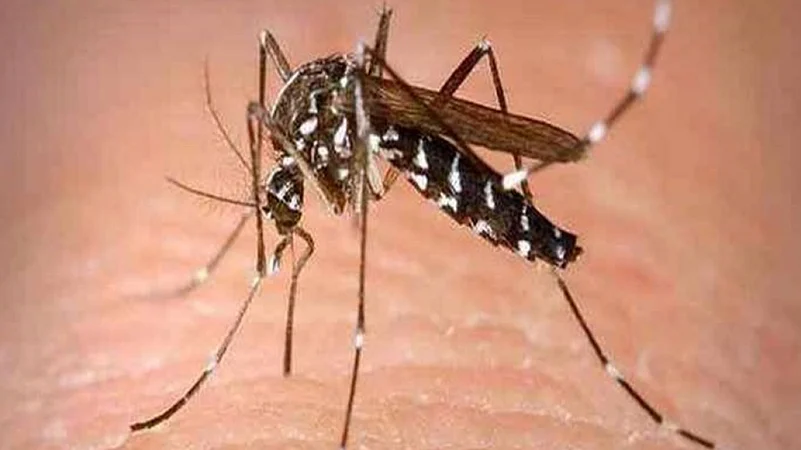Amid a surge in cases of dengue in the national capital, the civic authorities have identified nearly 250 hotspots where "large-scale breeding" of mosquito larvae have been found. Nearly 700 cases of dengue have been reported last month till September 28, with more than 400 infections recorded in its last week alone.
MCD Identifies Large-Scale Breeding Of Mosquito Larvae At 250 Hotspots
The MCD has created a WhatsApp group in all wards to redress complaints and to impart awareness among the people. It has organised 258 anti-malaria and anti-dengue days in all zones, involving public representatives, RWA representatives, market associations and the general public, the statement said.

Of the 937 total cases recorded this year till September 28, 75 were reported in August. The Municipal Corporation of Delhi (MCD) on Friday said it has intensified fogging drives at various locations to destroy such larvae which will help in reducing cases in the city.
The public health department of the MCD has identified approximately 250 hotspots, where large-scale breeding of mosquito larvae have been found. The MCD is adopting various measures to destroy larvae at these sites with spraying of insecticides, focal spray or fogging, releasing larvivorous fishes in large water bodies, it said in a statement.
Special focus is being given to large waterbodies and drains which are being covered by power spray tankers and motorised pumps in all the 12 zones, officials said. The MCD has conducted "nearly 2.61 crore house visits by DBC (dengue breeding checking) workers and 1,30,544 houses were found positive for breeding and 11,88,282 houses have been covered under fogging," it said.
A mosquito terminator train is being run spanning all 12 zones, to cover inaccessible breeding sites near railway tracks. Joint programmes are also being carried out in wards where clustering of dengue cases is being found, the MCD said.
Special campaigns and drives are being carried out to cover vulnerable areas like construction sites, parks, nurseries and institutions such as hospitals and schools in all 12 zones. During the special drive conducted at construction sites for prevention and control of vector borne diseases, "30 per cent of the sites were found positive for breeding of mosquito larvae and among the parks and nurseries, 14 per cent sites were found to be positive for breeding of mosquito larvae".
The Municipal Corporation of Delhi has roped in schoolchildren in its fight against the vector-borne disease. It has distributed a total of 5,18,989 "dengue home work cards", out of which 1,86,637 cards have been distributed in MCD schools, 1,45,449 in private schools and 1,86,903 cards in Delhi government schools, the statement said.
School students are given tasks to fill up weekly details of sites related to prevention and control of vector-borne diseases, at their homes. To spread awareness amongst students, 173 drawing competitions and 4,125 rallies have been organised, it claimed. Taking public awareness campaign a step further, the MCD has sent bulk messages to the people of Delhi, sensitising them about various preventive measures that can be taken to prevent dengue.
The MCD has created a WhatsApp group in all wards to redress complaints and to impart awareness among the people. It has organised 258 anti-malaria and anti-dengue days in all zones, involving public representatives, RWA representatives, market associations and the general public, the statement said.
In 2015, the city had witnessed a massive dengue outbreak, with the number of cases crossing 10,600 in October. It was Delhi's worst dengue outbreak since 1996. No death has been reported so far this year due to the disease.
(With PTI inputs)
-
Previous Story
 'I Don't Know': Champai Soren Denies Rumours Of Switch To BJP; Himanta Sarma Praises His Contribution In Jharkhand
'I Don't Know': Champai Soren Denies Rumours Of Switch To BJP; Himanta Sarma Praises His Contribution In Jharkhand - Next Story


















